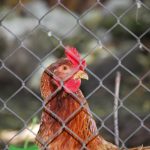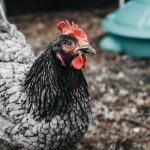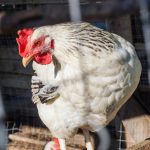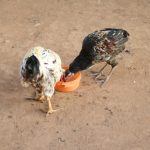Chickens are social creatures that thrive in structured environments. They possess a natural instinct to peck and scratch the ground, spending considerable time foraging for food. These birds also exhibit a strong inclination towards cleanliness, often engaging in dust baths to remove parasites and excess oil from their feathers.
Understanding these behavioral patterns is essential when designing a water system for chickens, as it ensures their needs are met and they have consistent access to clean water. Chickens display natural curiosity and tend to investigate new elements in their surroundings, including water sources. They are particularly drawn to shiny objects and may peck at water containers out of inquisitiveness.
Furthermore, chickens establish a hierarchical pecking order within their flock, which can influence their behavior around water sources. Dominant individuals may monopolize water access, potentially disadvantaging subordinate birds. These behavioral aspects must be considered when designing a chicken water system to ensure equitable access to clean water for all birds in the flock.
Table of Contents
- 1 Designing a proper water system for chickens
- 2 Implementing deterrents to keep chickens away from water
- 3 Maintaining cleanliness around the water area
- 4 Training chickens to avoid pooping in water
- 5 Monitoring and adjusting the water system as needed
- 6 Seeking professional advice for persistent issues
- 7 FAQs
- 7.1 What are some methods to keep chickens from pooping in water?
- 7.2 Why is it important to keep chickens from pooping in water?
- 7.3 How can raising the water source off the ground help prevent chickens from pooping in it?
- 7.4 What are nipple waterers and how can they help prevent chickens from pooping in water?
- 7.5 How often should the water source for chickens be cleaned and maintained?
Key Takeaways
- Chickens are naturally attracted to water and will often congregate around water sources
- A proper water system for chickens should be designed to provide easy access to clean water while minimizing spillage and contamination
- Deterrents such as barriers or motion-activated devices can be used to keep chickens away from water areas
- Regular cleaning and maintenance of the water area is essential to prevent contamination and disease spread
- Training chickens to avoid pooping in water can be achieved through consistent reinforcement and positive reinforcement techniques
- Regular monitoring and adjustment of the water system is necessary to address any issues and ensure optimal functionality
- Seeking professional advice can be helpful for persistent issues with chicken behavior around water sources
Designing a proper water system for chickens
Minimizing Contamination
One common option is to use nipple drinkers, which are attached to a water supply and release water when pecked by the chickens. This type of system helps keep the water clean and prevents spillage, reducing the risk of contamination.
Alternative Watering Systems
Another option is to use water containers with a cover or lid to prevent chickens from perching on top and contaminating the water with droppings. It is important to regularly clean and refill these containers to ensure that the water remains fresh and free from bacteria.
Accommodating Flock Size
The water system should be designed to accommodate the size of the flock, ensuring that there are enough drinking points for all chickens to access water without competition.
Implementing deterrents to keep chickens away from water
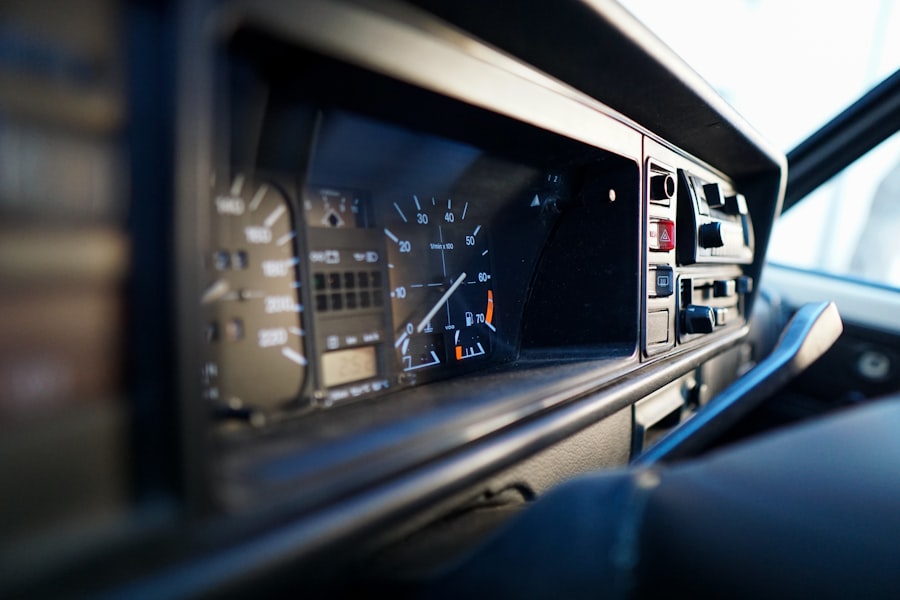
To prevent chickens from contaminating the water source, it is important to implement deterrents that discourage them from perching on or pecking at the water containers. One effective deterrent is to place physical barriers around the water source, such as wire mesh or fencing, to prevent chickens from accessing the area directly. This can help keep the water clean and reduce the risk of contamination from droppings or feathers.
Another deterrent is to use visual or auditory stimuli to discourage chickens from approaching the water source. For example, hanging shiny objects or using scarecrows near the water containers can help deter chickens from getting too close. Additionally, using motion-activated sprinklers or noise-making devices can startle chickens and discourage them from approaching the water source.
These deterrents can help maintain the cleanliness of the water system and reduce the risk of contamination.
Maintaining cleanliness around the water area
Maintaining cleanliness around the water area is essential for ensuring that chickens have access to clean and safe drinking water. Regular cleaning of the water containers is crucial to prevent the buildup of bacteria and algae, which can contaminate the water and pose a health risk to the chickens. It is important to empty, clean, and refill the water containers on a regular basis to ensure that the water remains fresh and free from contaminants.
In addition to cleaning the water containers, it is important to keep the surrounding area clean and free from debris that could contaminate the water. This includes removing any droppings, feathers, or other waste materials that may accumulate around the water source. Keeping the area clean can help prevent contamination and reduce the risk of disease transmission among the flock.
Training chickens to avoid pooping in water
Training chickens to avoid pooping in the water can help maintain the cleanliness of the water system and reduce the risk of contamination. One effective method is to provide alternative areas for chickens to perch or roost away from the water source. By providing designated roosting areas, chickens are less likely to perch on or near the water containers, reducing the risk of contamination from droppings.
Another method is to use positive reinforcement to encourage desirable behavior around the water source. For example, providing treats or rewards when chickens avoid perching on or pecking at the water containers can help reinforce this behavior. Additionally, using deterrents such as visual or auditory stimuli can help discourage chickens from approaching the water source, further reducing the risk of contamination.
Monitoring and adjusting the water system as needed
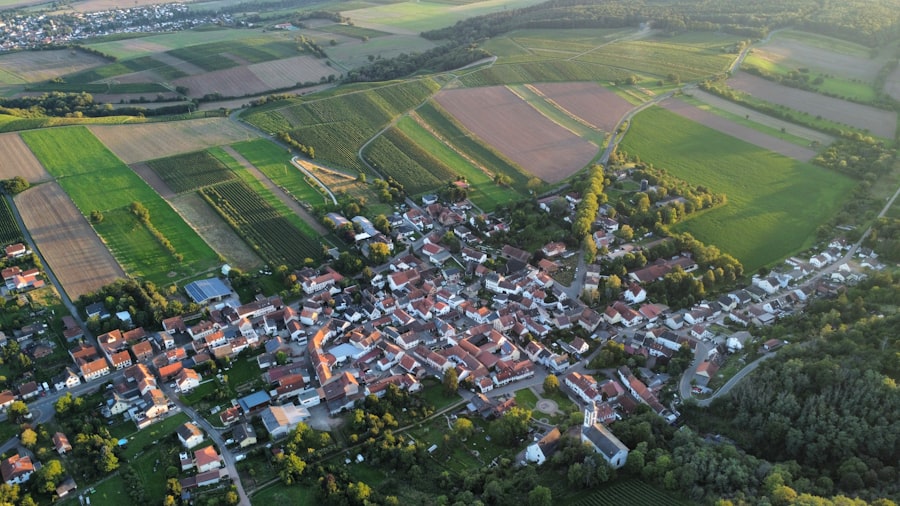
Identifying Potential Issues
Regular checks should be made to identify any potential sources of contamination, including leaks, blockages, or damage to the water containers. The cleanliness of the water and surrounding area should also be monitored to prevent the spread of disease.
Addressing Issues Promptly
Any issues that are identified should be addressed promptly to ensure that the chickens have access to clean and safe drinking water at all times. This may involve repairing or replacing damaged equipment, cleaning the water containers and surrounding areas, or taking other corrective action.
Adjusting the Water System
In addition to regular monitoring and maintenance, it may be necessary to adjust the design or placement of the water containers as needed. This could include repositioning them to minimize exposure to droppings or feathers, or adding additional drinking points to accommodate the size of the flock. Regular adjustments can help ensure that the water system remains effective in providing clean and safe drinking water for the chickens.
Seeking professional advice for persistent issues
If persistent issues arise with maintaining a clean and effective water system for chickens, it may be necessary to seek professional advice from a veterinarian or poultry expert. These professionals can provide guidance on best practices for designing and maintaining a water system that meets the specific needs of the flock. They can also offer advice on managing behavioral issues or health concerns related to water quality and contamination.
In some cases, it may be necessary to conduct water quality testing to identify any potential contaminants or health risks associated with the drinking water. A professional can help interpret these test results and provide recommendations for addressing any issues that may be affecting the cleanliness or safety of the water supply. By seeking professional advice, chicken owners can ensure that their flock has access to clean and safe drinking water, promoting their health and well-being.
If you’re looking for more tips on keeping your chickens happy and healthy, check out this article on how to insulate a chicken coop. Proper insulation can help regulate the temperature inside the coop and create a more comfortable environment for your feathered friends.
FAQs
What are some methods to keep chickens from pooping in water?
Some methods to keep chickens from pooping in water include raising the water source off the ground, using nipple waterers, and regularly cleaning and maintaining the water source.
Why is it important to keep chickens from pooping in water?
It is important to keep chickens from pooping in water because their feces can contaminate the water, leading to potential health issues for the chickens and an increased risk of spreading diseases.
How can raising the water source off the ground help prevent chickens from pooping in it?
Raising the water source off the ground can help prevent chickens from pooping in it by making it less accessible for them to perch or stand on while drinking, reducing the likelihood of feces contaminating the water.
What are nipple waterers and how can they help prevent chickens from pooping in water?
Nipple waterers are a type of waterer that dispenses water through small nipples that chickens can drink from. They can help prevent chickens from pooping in water by keeping the water source enclosed and reducing the likelihood of contamination.
How often should the water source for chickens be cleaned and maintained?
The water source for chickens should be cleaned and maintained regularly, ideally on a daily basis, to ensure that it remains free from feces and other contaminants. Regular cleaning and maintenance can help prevent chickens from pooping in the water.
Meet Walter, the feathered-friend fanatic of Florida! Nestled in the sunshine state, Walter struts through life with his feathered companions, clucking his way to happiness. With a coop that’s fancier than a five-star hotel, he’s the Don Juan of the chicken world. When he’s not teaching his hens to do the cha-cha, you’ll find him in a heated debate with his prized rooster, Sir Clucks-a-Lot. Walter’s poultry passion is no yolk; he’s the sunny-side-up guy you never knew you needed in your flock of friends!


